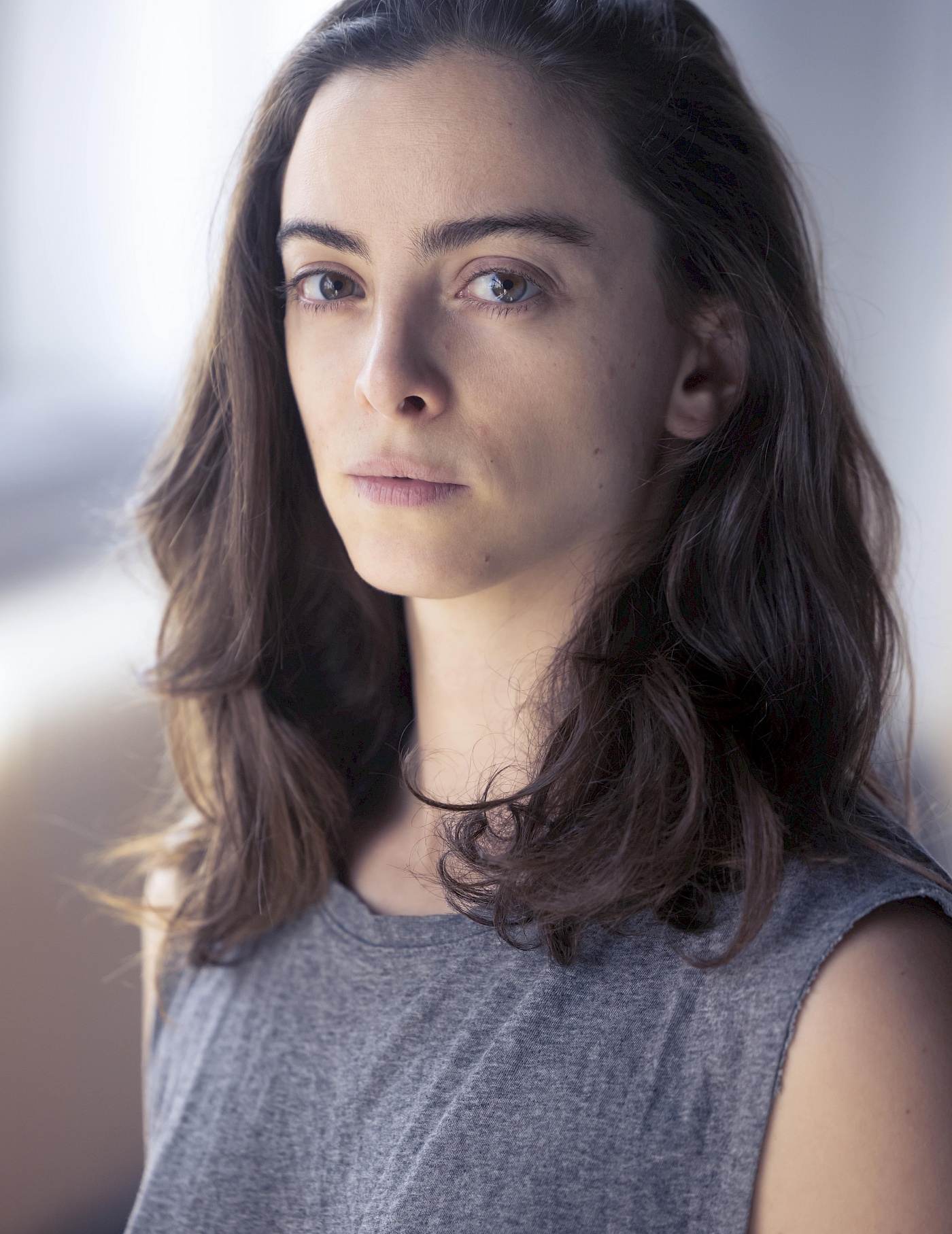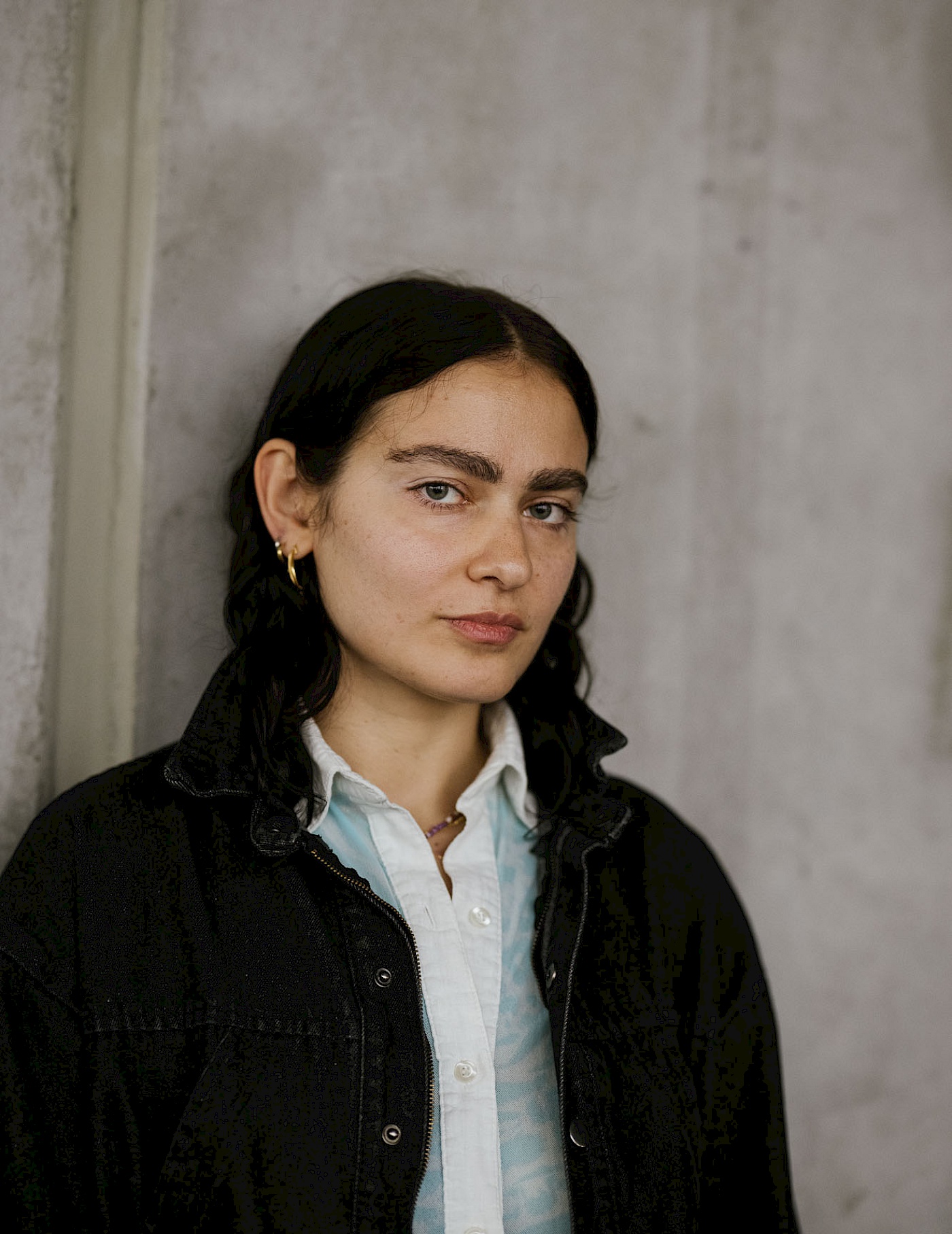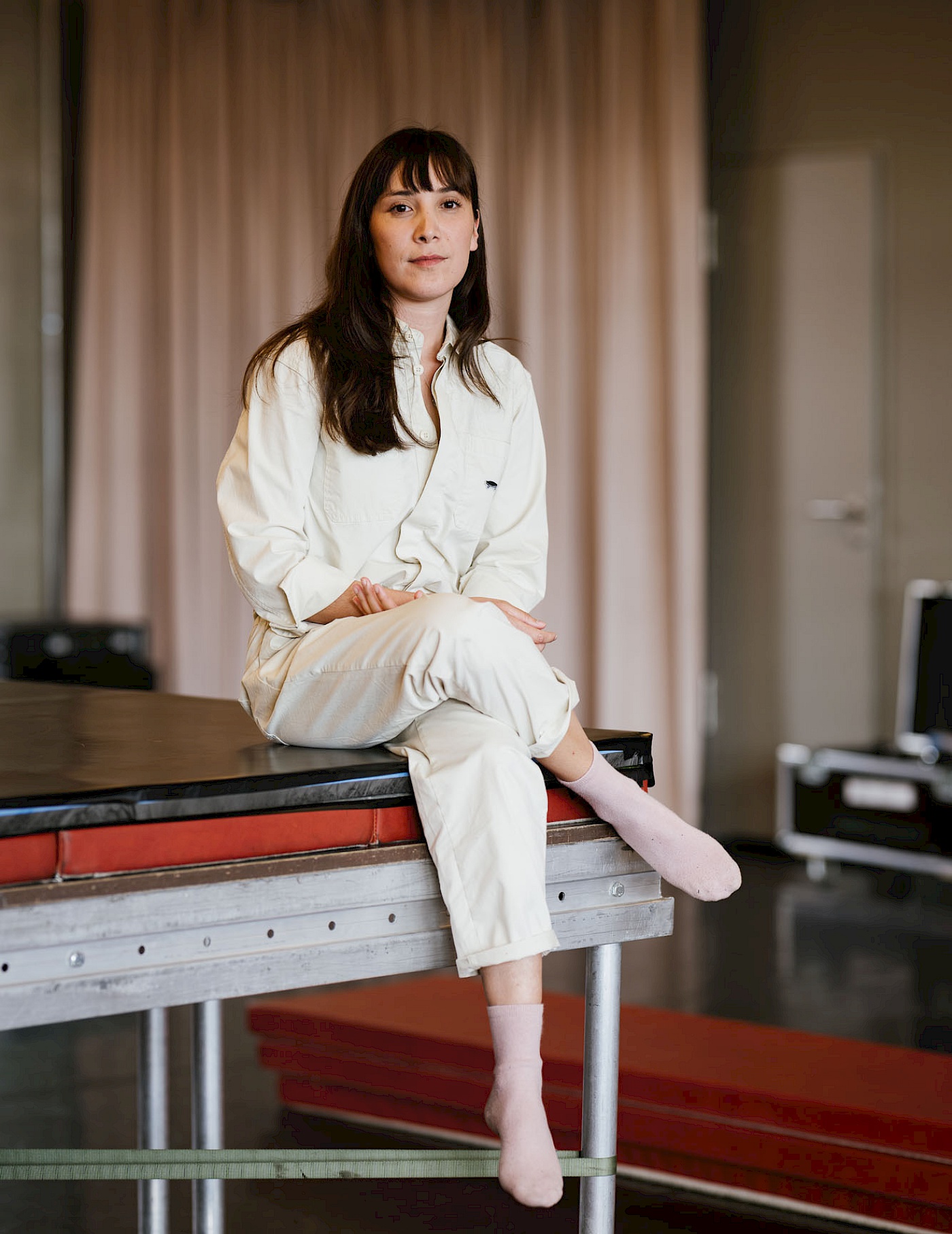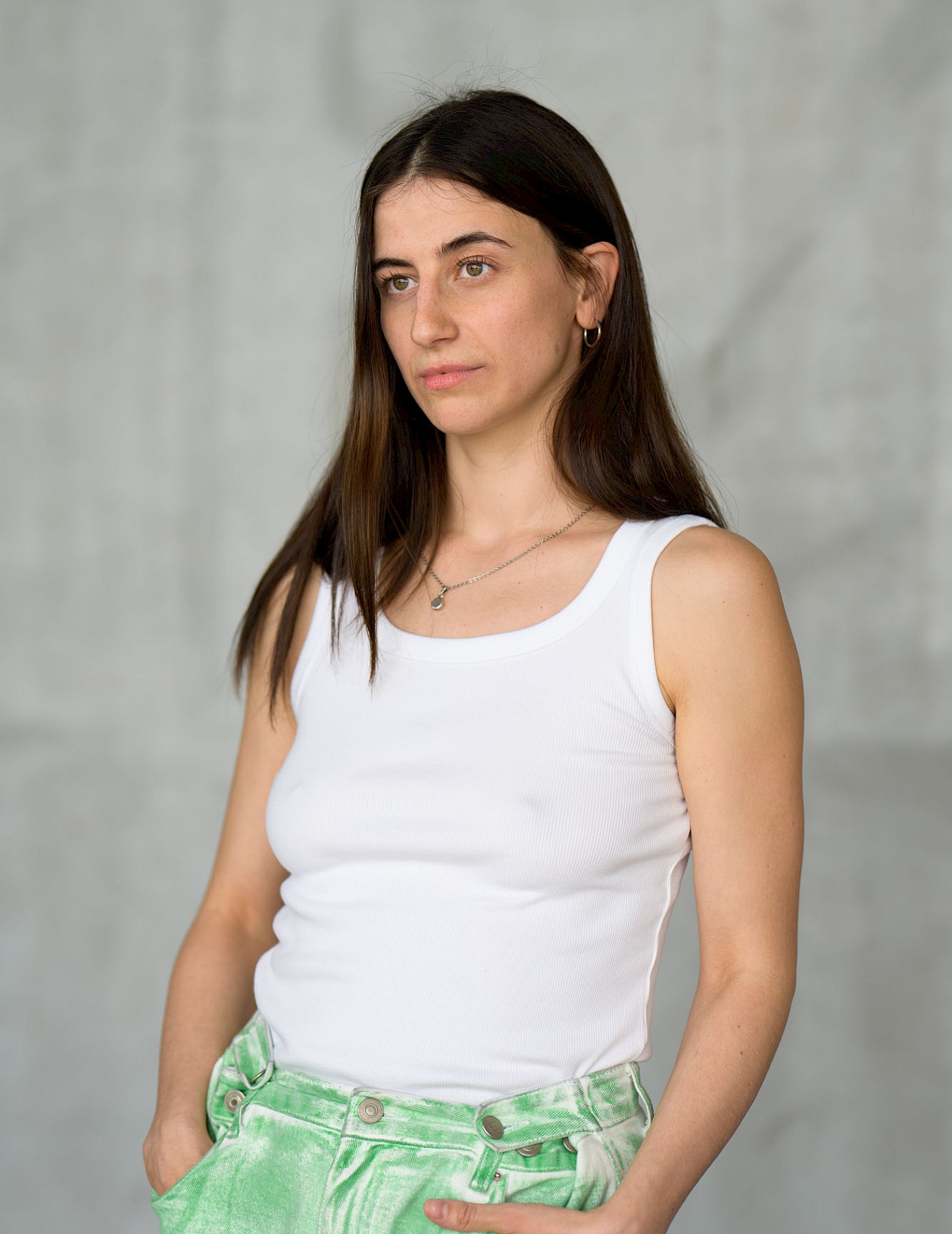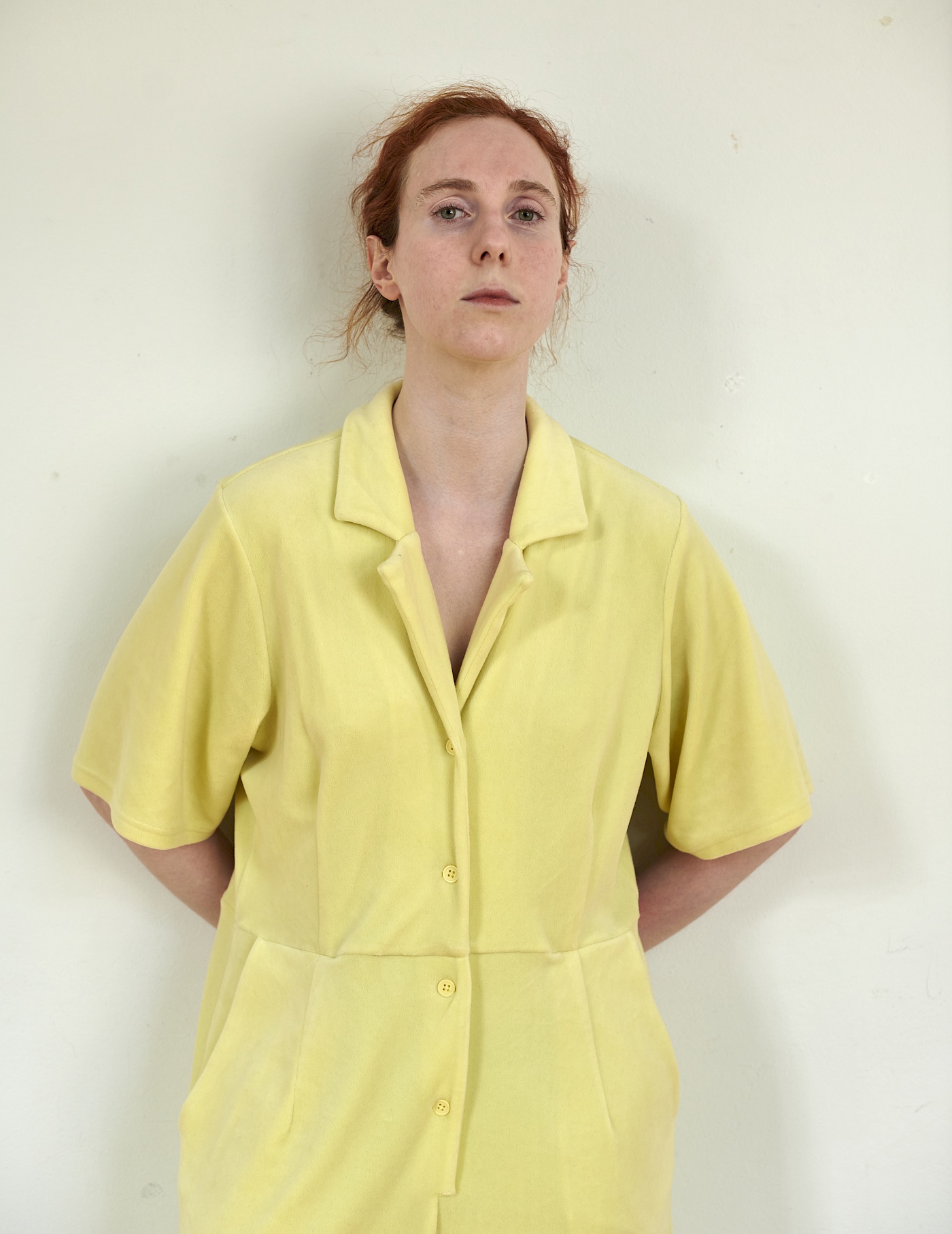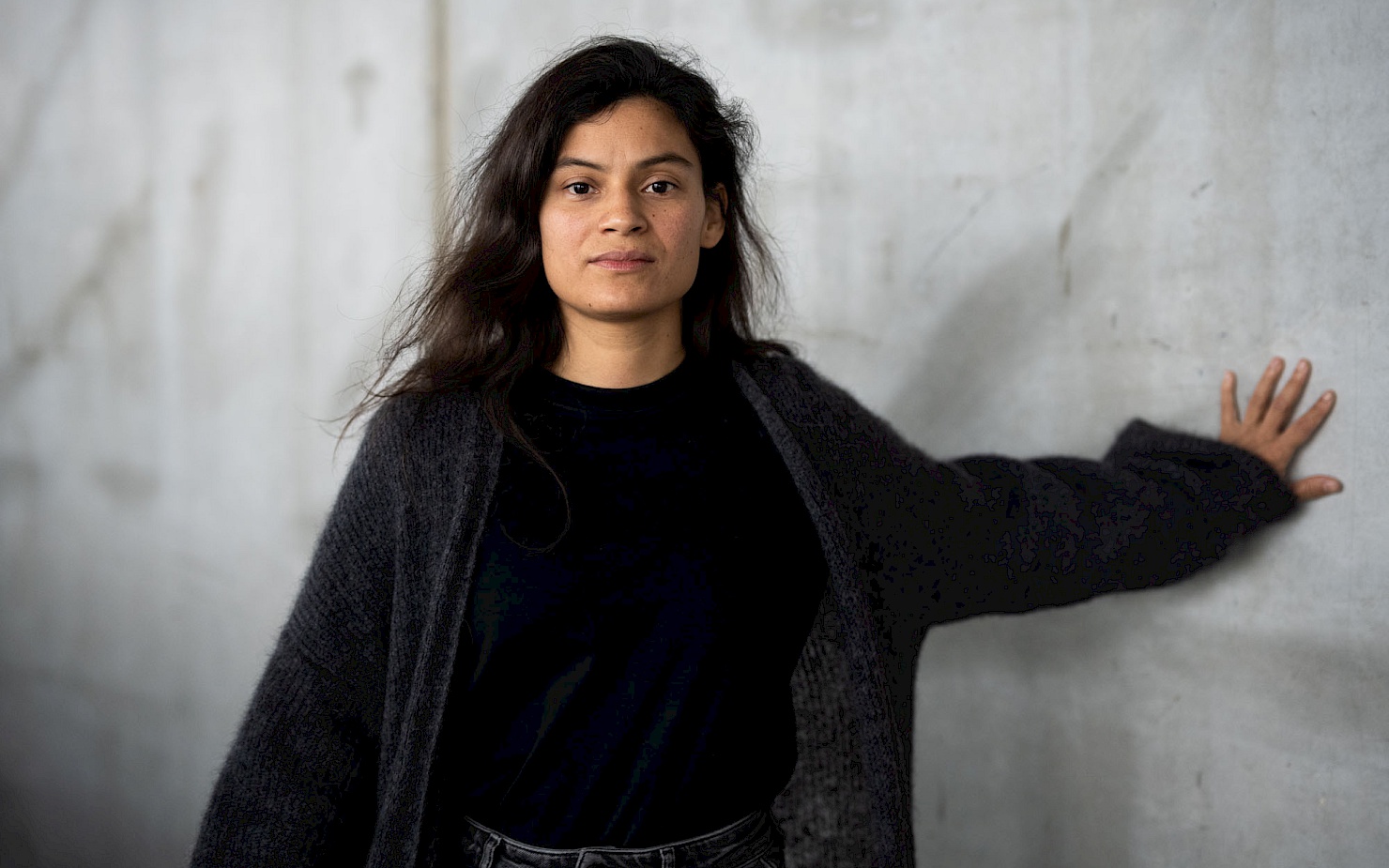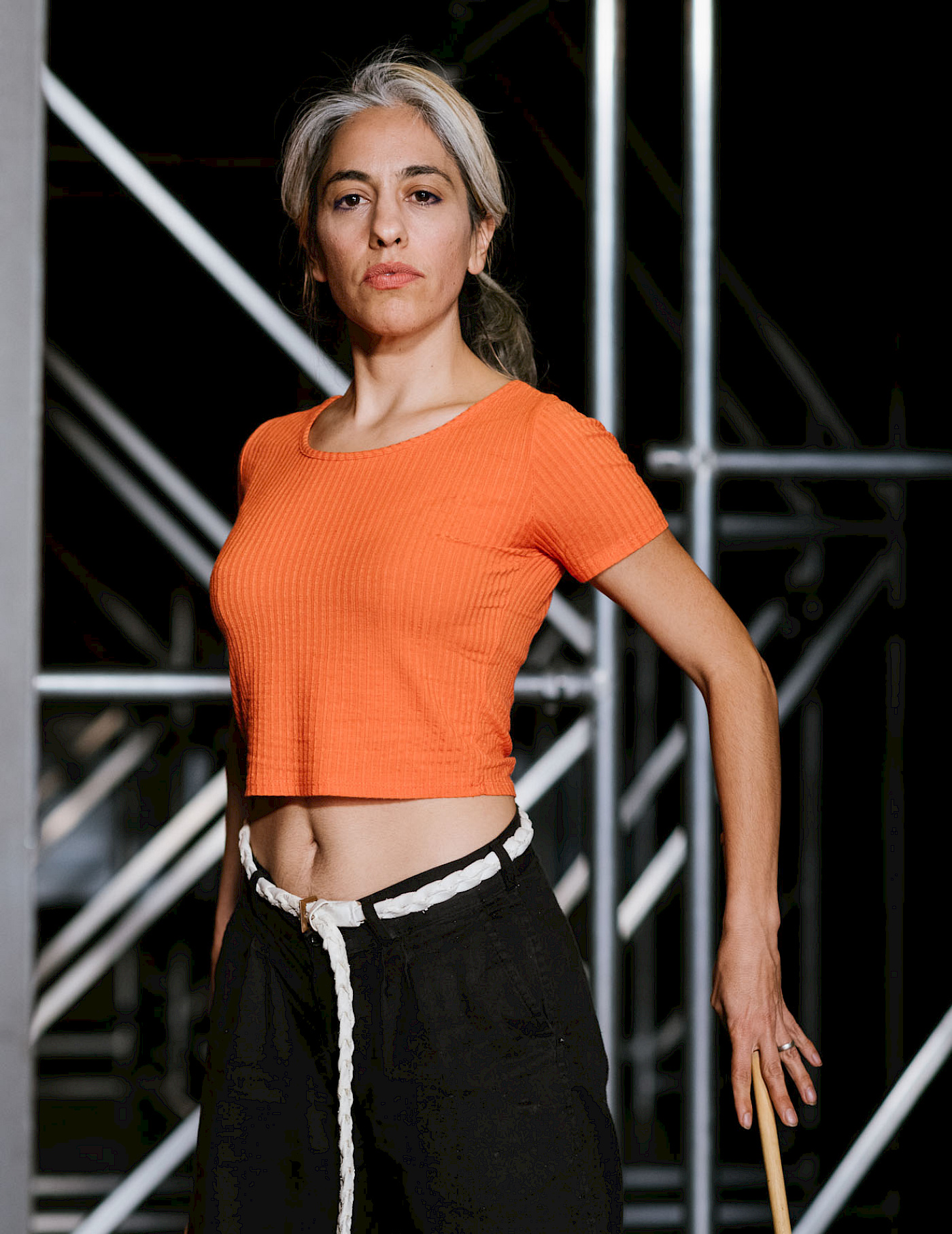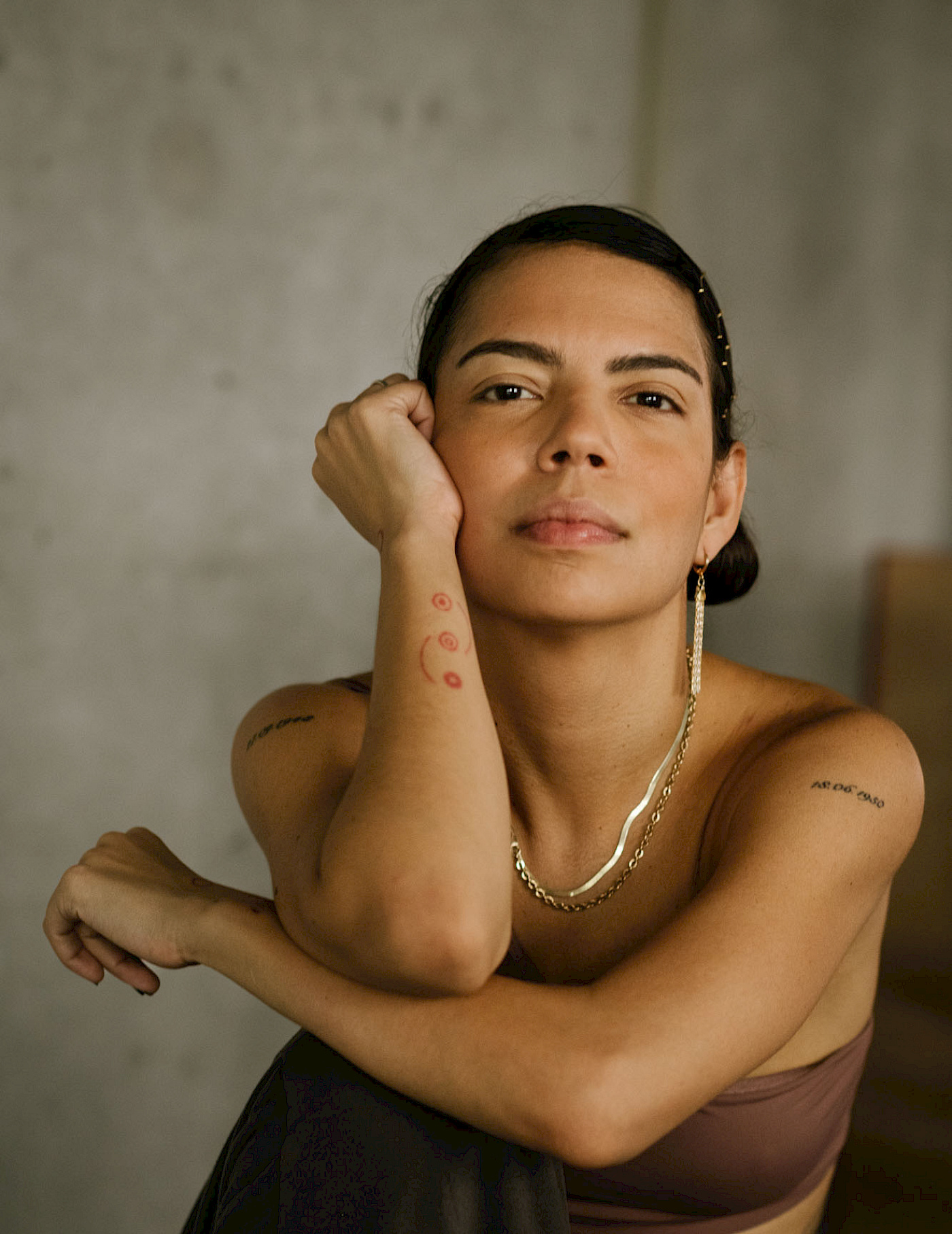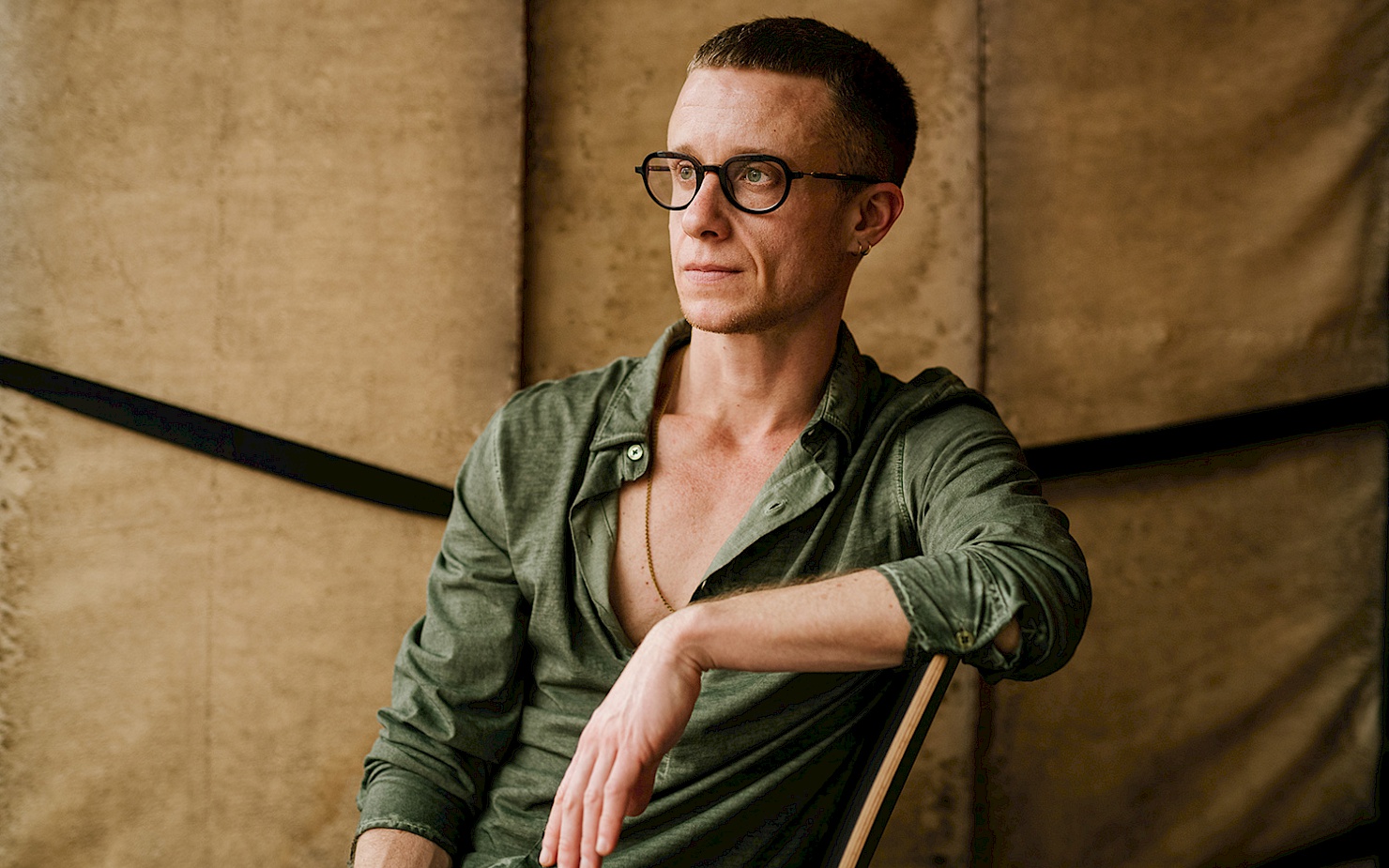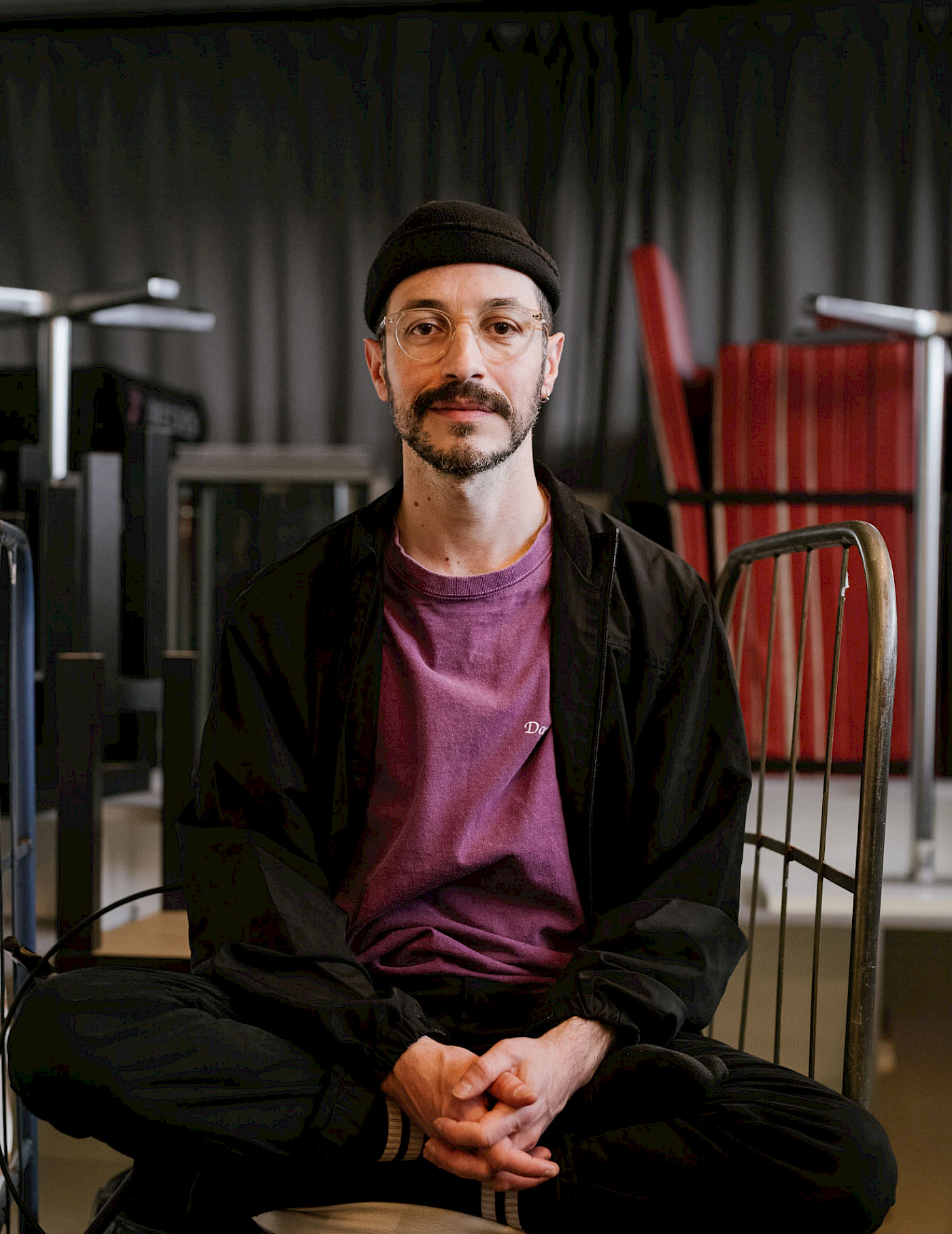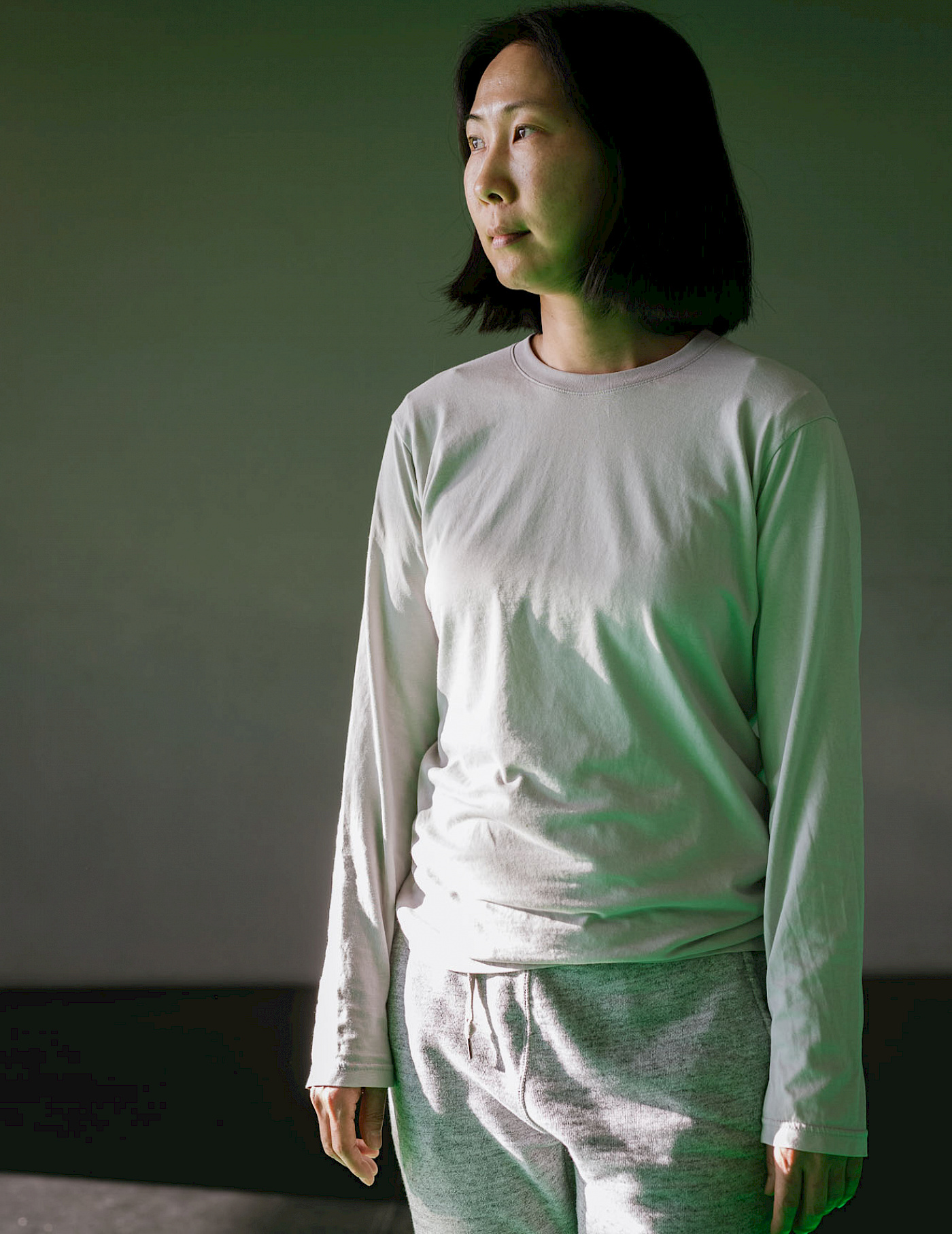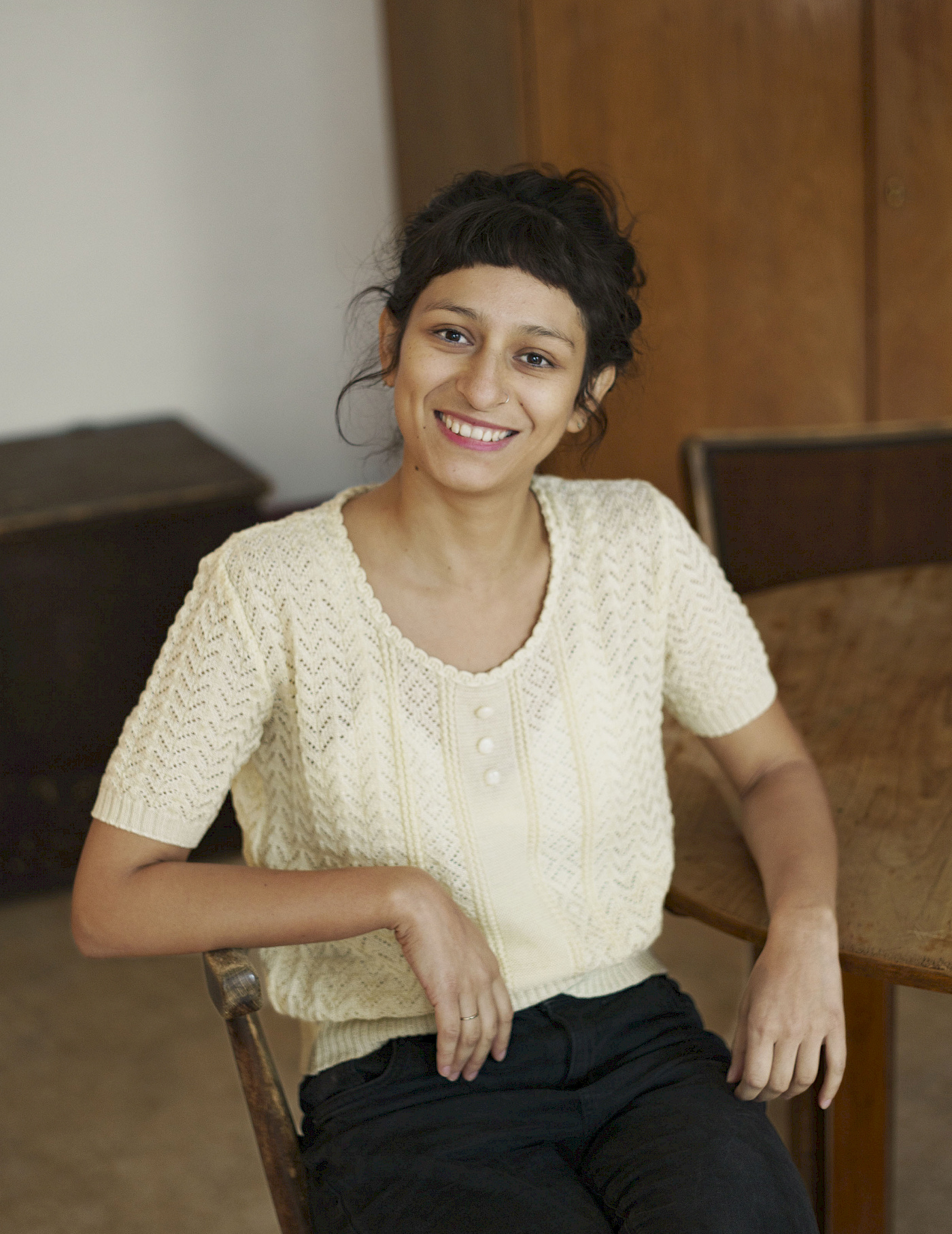Residency program at Radialsystem
Within its new residency program “Body Time Space”, Radialsystem invites Berlin based artists or groups to its studios for a residency of four weeks. The aim of these residencies at Radialsystem is to enable dance professionals to develop and deepen their existing artistic focus in an open and safe environment. The residency in this case stands for an openness towards the artistic process and acknowledges that time and space are essential for artistic development. Therefore they should be understood as a space for pre-conceptual experimentation – beyond a concrete production.
During the residency phases, the artists are invited to reflect on their own work in transdisciplinary exchange with international dialogue partners from other fields of knowledge and/or artistic disciplines. The process can be opened to the public in the context of studio visits, public performances, workshops or exhibitions on the stages and in the studios of Radialsystem. In addition to a grant, the dancers receive technical support, dramaturgical assistance and production or press/marketing coaching by Radialsystem’s staff if required.
Body Time Space is part of the pilot project “Residenzförderung für Berliner Tanzschaffende” (Residency Funding for Berlin Dance Professionals), in which the Senate Department for Culture and European Affairs has announced and awarded residency programs for the first time in 2020. Together with eight other venues, Radialsystem will offer residencies to Berlin based dance artists.
July / August 2025: Dancer Julia B. Laperrière
Julia B. Laperrière's past productions focused on the topic of ‘dangerous women’ and put forth resistance through protesting, fighting, self-defence and pleasure activism. In the context of the current precariousness of the dance profession, exacerbated by geopolitical conflicts and increasing mental health crisis amongst peers, she asks: what if joy was actually the most dangerous thing, the utmost form of resistance?
Inspired by Louise Dupré’s Exercices de joie, a poetry book that puts forth joy not as an individual feeling but as a collective responsibility, Julia B. Laperrière aims to use this residency to investigate how joy can be created in the body, by the body, and with other bodies: as a chance to investigate joy as a technique of resistance and resilience while finding sustainable, collective ways to keep supporting one another.
Julia B. Laperrière is French-Canadian choreographer and performer based in Berlin, and working between Germany, France and Canada. As such, the mix of practices, languages and genres (both artistic and identity related) form an integral part of her practice. She holds an MA in choreography from Master Exerce/ICI-CCN. Working from a queer feminist perspective, she has lately been interested in the female gaze, dangerous dances and new intimacies. Her latest works are touring in Germany, France, Canada and Norway. Since 2023, Julia is a board member of Zeitgenössischer Tanz Berlin e.V., where her volunteer work focuses on issues fundamental to the artistic milieu, such as precariousness as a condition of artistic work, political representation, accessibility, mediation and collaboration between institutions.
Residency Julia B. Laperrière
Dance James Raney, Ewa Dziarnowska und Nicole Berndt-Caccivio
Video Janne C. Ebel
April – December 2025: Dancer and Choreographer Hanako Hayakawa
During her residency, Berlin-based Japanese dancer Hanako Hayakawa will explore the role of “cuteness” in Western dance discourse. As a performative strategy, “cuteness” moves primarily between depictions of passivity, childlike helplessness, powerlessness and the exploitation and control of cute and non-threatening objects. In collaboration with associated artists and dialogue partners, Hanako Hayakawa will explore how “cuteness” in dance can be conceptualised beyond normative power structures and developed into a more nuanced and ambivalent concept.
Instead of disregarding “cuteness”, the resident will approach phenomena such as war dances by schoolgirls, social networks, toys and animations to investigate how ‘cute’ forms and objects are communicated through different bodies and embodiments. In doing so, Hanako Hayakawa is looking for ways to play with the power of objectification and “cute-ification” from a critical perspective.
Hanako Hayakawa is a Japanese dancer and dance maker. She completed the P.A.R.T.S. training cycle in Brussels and previously studied at the Tama Art University under Saburo Teshigawara. She works with international artists such as Tino Sehgal, Miet Warlop and Leiko Ikemura. Her choreographic work is an extension of her dance practice and is based on a combination of her experiences as a dancer, performer and facilitator. In 2022, she participated in the “made in Berlin” research residency at Lake Studio Berlin and received a grant from #takeHeart for her research “Killing scores” and “Ghostly body – Research on Para Para Dance 2023”. Her first solo dance piece, “Lurker”, premiered at DeSingel in Antwerp in October 2024 and had its German premiere as part of Tanztage 2025 at Sophiensaele.
Performance/Dance Yuri Shimaoka, John Shades, Leah Marojević and Chihiro Araki
Dialogue partners Jade Meili Barget, more tba
November / December 2024: Artist and Choreographer kiana rezvani
kiana rezvani, born in west Iran and based in Berlin, is an artist, choreographer and researcher developing choreographic and performative formats that blend dance, text, video and voice. kiana’s continuous research revolves around histories and narratives that are forgotten, untold, concealed and suppressed. Weaving together personal and collective memories and finding distinct parallels and intersections, kiana’s works craft new relations and realms of possibility, critically examining colonial and imperial constructs, and thereby creating a space for poetic resilience.
kiana’s research at Radialsystem takes a deeper look at our modes of relation to body and land. While reflecting on questions of ownership, be/longing and otherness and holding space for remembering, it asks: can we radicalize our imagination of the future? How can choreography bring movement to the unmovable, to the rigid? How can it bring liquidity into our thinking and existing? The project is a tender recalling of our struggle, a gap in existing in the ways which have been prescribed to us. A pause to locate ourselves and understand what we can bring to this moment of normalized crisis and violence.
Artistic direction and performance kiana rezvani
Performer and co-creator Elvan Tekin und jee chan
Choreographic dialogue Ewa Dziarnowska
Space and things stefan pente
Costume research Isabelle Edi
March/April & August/September 2024: Dancer & Performer Valeria Oviedo
During her residency, Berlin-based Mexican artist and producer Valeria Oviedo explores the origins and powerful effects of conflict through an artistic-experimental engagement with combative and theatrical movements and expressions. The traditional Mexican version of ‘Wrestling Lucha Libre’, which combines martial, acrobatic and performative elements, serves as a foil for examining fights shaped by the body. Humour and playfulness, as well as resistance and friction, play particularly important roles for the artist.
Together with other performers, with musician Emme Moises, and in exchange with her chosen dialogue partners, the artist also investigates concepts and techniques of mindfulness and meditation to better understand the state of the body and mind in moments of conflict. Her work is based on the conviction that conflicts need to be considered both from the inside and the outside – along the lines of “Otherness”.
Valeria Oviedo is an interdisciplinary artist and producer from Tijuana, Mexico. Her work focuses on choreography, media art and performance and deals with themes such as borders, origins, the role of women as well as mourning and death. Through her works, she always tries to create a connection with the audience – regardless of whether they have an existing relationship with art or not. Since 2020, Valeria Oviedo has been working and living in Berlin, where she offers guided meditations and mindful movement exercises. Most recently, she developed the production “Los Malos Hábitos” as part of the Research Residency at ada Studio für zeitgenössischen Tanz in Berlin.
Showing
Towards the end of her Body Time Space residency at Radialsystem, Valeria Oviedo will present the current stage of her performance “FEISTY” in a showing followed by an artist talk.
March / April / May 2024: Dancer and Performance Artist Frida Giulia Franceschini
Berlin-based Italian artist Frida Giulia Franceschini has been working on a new performance with sound designer Sophie Vitelli as part of her Body Time Space residency. "The Night" (working title) explores through movement and text the painful spectacle that shaped Italian television during the Berlusconi era: for decades, the female body was instrumentalised and exploited. Together with other performers and musicians, Frida Giulia Franceschini investigates how the portrayals that dominated Italian suppertime for years now continue to ‘inhabit’ bodies. Franceschini studies the stories and identities that circulate in this world, as well as the fictional narratives and social discourses. The night serves as an imaginary place that connects dreams and nightmares, sense and nonsense, and infatuation and horror.
Frida Giulia Franceschini is a dancer and performance artist based in Berlin. With a background in visual art, acrobatics and contemporary dance, from 2012 to today Frida has been collaborating and working as a freelance performer for various artists and choreographers. She has created three stage performances: "Baby", "Three Little Rooms" and "Tricks for gold". With the eponymous title, she presented a short film in 2022, co-created and co-directed with Sophie Vitelli.
Choreography & performance Frida Giulia Franceschini
Co direction, sound design & music Sophie Vitelli
Performance Emil Ertl und Simo Vassinen
Performance & movement research Viktoria Andersson
November / Dezember 2023: Tänzerin, Choreografin und Wissenschaftlerin Kasia Wolińska
Kasia Wolinska is a dancer, choreographer and writer. In her artistic practice deals with political and historic dimensions of dancing, studying both theory and discourses. But first and foremost, her practice centres around techniques and methods of moving, positioning her own dancing body as a continuously transforming composite of forms, sensations, affects and stories. She believes in the value of transnational and interspecies solidarity; in dancing as a practice of knowledge and resistance; and in the necessity of a perpetual socialist and feminist struggle for the sake of collective liberation and realization of the post-war utopia. Kasia Wolinska also dedicated herself to developing discourse and methods around good work culture in dance, which is an ongoing process of critical reflection and practice in the Berlin scene and beyond. She is currently a proud member of the systering collective.
During the residency at Radialsystem she engages with the realm of religion and dance: an attempt to experience the movement of spirits, to touch the sacred space and time, and to rejuvenate her relation to dancing beyond the demands of the art market and towards an act of dancing as communion – with the whole of oneself and the worlds of others. Departing from the iconic Pink Floyd concert at Pompeii (1972) and Los Jaivas concert at Machu Picchu (1981), and together with invited scholars, dramaturges, artists and spiritual practitioners, she dives into the space where sound and movement intermingle, incite transgressions, and allow for joy, rage and mourning.
Open Body Practice
During the last week of her Body Time Space residency at Radialsystem, Kasia Wolinska invites movement practitioners to two morning sessions which will be centred around her tireless interest in dancing and its technical, sensorial, historical, and spiritual dimensions.
Oktober / Dezember 2023: Tänzerin und Choreografin Ixchel Mendoza Hernández
The Mexican choreographer and dancer Ixchel Mendoza Hernández has lived and worked in Berlin since 2007. Her research is based on a phenomenon she calls ‘Visual Ghost’, a consciousness of perception that continuously transforms or evolves: Living in a world in which the materialized and visible are intertwined with the immaterial and the invisible, ‘Visual Ghost’ explores how the invisible and immaterial can come into presence by experiencing them. Through the means of choreography, she explores a consciousness that materializes in space.
Her research during the Body Time Space residency at Radialsystem focuses on emotional practices and the agency of touch and connection through the intimate relations between three performers. Through skin-to-skin explorations and deep embodiment of emotions, the aim is to reflect upon power relations and expand upon this perspective to analyse power structures through the lens of intersecting social divisions, such as racialization, gender, and sexuality, and the complex web of relationships between humans, nature, and the universe. By choreographing relations, her interest is to interweave the personal and the mutual, the individual and the social, exploring the transformative potential of touch and reflecting upon how we shape and are shaped through one another.
Ixchel Mendoza Hernández studied choreography and dance at the ArtEZ University of the Arts Arnhem and in the SoDA program at the Hochschulübergreifendes Zentrum Tanz – HZT Berlin. Her work has been presented at numerous venues and festivals. As a dancer and performer, she has worked with Susanne Kennedy, with whom she recently collaborated, creating the choreographic material for re-staging the opera “Einstein on the Beach”, which premiered in Basel in 2022. Ixchel’s current choreographic works include “THE TWOFOLD PARADOX” (2018), “The Reversed Alchemist: Figure 4-6” (2021), and “THE MULTIPLICITY OF THE OTHER”, which will premiere in November 2023 in Berlin.
Residency Ixchel Mendoza Hernández
Research together with Dora Đurkesac, Hyewon Suk, Maika Knoblich, Joséphine Evrard, Roger Salar Reyner and Sebastian Elias Kurth
Oktober 2022: Tänzerin und Choreografin Rocío Marano
Argentine dancer and choreographer Rocio Marano has been awarded a residency in Radialsystem's programme "Body Time Space" for October 2022. Her artistic research focuses on traditional Argentine dance, challenging Western attributions such as those assigned to folklore, as well as related aesthetic paradigms of contemporary academic dance. Her residency allows her to explore "Latinfuturism" and its notion of time, a theory that is suspicious of the idea of a glorious future realised through acceleration and progress.
Building on her last work "Matria", Marano also deepens her exploration of Malambo – a traditional Argentine gaucho dance form that emerged during the colonial "conquest" of the Wallpampu desert. Within a performative approach, Marano's interest lies in bringing opposites into contact with one another in space and time. Using VR technologies and 360° cameras, she explores the artistic and aesthetic dimensions of such spatiotemporal points of contact.
The workshop Matria – Motherland marks the end of the residency period.
Mai 2022: Tänzerin, Choreografin und Kuratorin Kianí del Valle
As part of her "Body Time Space" residency at Radialsystem, Kianí del Valle is developing the concept of "Mujer Pulpo" ("Octopus Woman"). Through a dialogue between dance and film, the Berlin-based Puerto Rican dancer, choreographer, director and performance curator explores the biographies of eight women forgotten by history; in Radialsystem she focusses on German postmodern dancer, choreographer and dance teacher Mary Wigman, and US-American performance artist Carolee Schneemann. Each solo features a live performance and film, developed in collaboration with various music producers and filmmakers, and is the point of departure for the "Mujer Pulpo" project to eventually become a "cinematheque".
Kianí del Valle is the founder and choreographer of the KDV DANCE ENSEMBLE in Berlin. Her work has been shown at such arts organisations as the Barbican in London, the CCCB in Barcelona, the Getty Museum in Los Angeles and the Tribeca Performing Arts Center in New York City. Her recent work explores historical Caribbean narratives within the context of postcolonial realities and indigenous Taíno culture.
März 2022: Choreograf Pol Pi
Following its successful inaugural year at Radialsystem in 2020, the residency programme "Body Time Space" is expanding: in cooperation with the Institut français, "Corps Espace Temps" is a programme aimed specifically at dance practitioners from France. The diverse dance scene boasted by France is hardly visible in Berlin due to a lack of funding for touring performances. The "Corps Espace Temps" residency at Radialsystem closes this gap, as France-based dance practitioners are given a platform and can enter into dialogue with artists from Berlin's independent scene. The first to participate is choreographer Pol Pi, who, together with musicians from the soloist ensemble Kaleidoskop, will deepen and further develop his artistic focus over a two-week research period.
Pol Pi is a transmasculine choreographer and performer from Brazil who has resided in France since 2013. His work revolves around questions of memory, translation and the notion of archive in dance. During his residency at Radialsystem, he and cellist Sophie Notte will explore the tensions and energies that seize and flow through a person's body when playing an instrument, and how this intensity can be translated into movement and dance. Pol Pi's work has been performed internationally; his most recent works include "beauty is accessory" (2021), "daté-e-s" (2020) and "Me too, Galatée" (2018).
April 2021 Choreographer, Dancer and Visual Artist André Uerba
Touch, closeness, togetherness – a choreographic-performative exploration of the practice of touch: During his residency at Radialsystem, André Uerba explores the different dimensions of touch – its properties, qualities and complexities. Through movement, ritardando and focus on the body, he and his co-residents test out different forms of becoming acquainted with and sensing one another as a means to uncover the potential of togetherness. He thus continues his examination of the topic of touch, which he embarked upon in 2018. André Uerba studied solo/dance/authorship at HZT Berlin (Inter-University Centre for Dance) and photography at Ar.Co Lisbon. He was awarded early career funding from the Berlin Senate in 2018 for his piece “Burn Time”, which he presented at Radialsystem in 2020 and elsewhere. Uerba has been part of the project “Re-Think (Accessibility & Sustainable Mobility)” since 2021.
February 2021 Choreographer and Dancer Jee-Ae Lim
Her artistic interest lies in the observation of the body as a moving archive – as a conveyor of cultural experiences and memories in the relationship between tradition and contemporaneity, individual memory and cultural remembrance, mobility and homeland. The impetus for her work is her own experience of diaspora, which she reflects corporeally in dance. Together with co-resident Natsuko Tezuka, she explores the ‘diasporic’ body as a potential new form of cultural practice. Jee-Ae Lim studied traditional Korean dance in Seoul and completed her master’s degree in Solo/Dance/Authorship at HZT Berlin. In 2014 she was voted ‘Hoffnungsträgerin’ (‘Promising Artist’) in the Tanz Magazine Year in Review issue as well as ‘Young Leading Artist 2015’ by Gaeksuk Magazine. Between 2017 and 2020 she received several grants from the Berlin Senate and the Arts Council Korea.
Novmeber 2020 Choreographer and Dancer Lina Gómez
Lina Gómez’s unique brand of choreography is characterised by uncompromising engagement with the body, a strong sense of form, and the merging of diverse movement traditions stemming from different cultural contexts. The relationship between music and dance that is intricately carved out in her pieces enables a new contemporary view of what ‘music theatre’ could mean beyond the conventions of the genre. The Colombian-born choreographer, dancer and movement teacher studied dance and theatre in Sao Paulo/Brazil and Berlin. Her ensemble piece ‘A Passo di Mulo’ (2018) was awarded funding by the Berlin Senate Department for Culture and Europe. As a dancer and performer, Lina Gómez works with Tino Sehgal, Yoshiko Chuma, Edson Fernandes and Jorge Garcia, among others.

